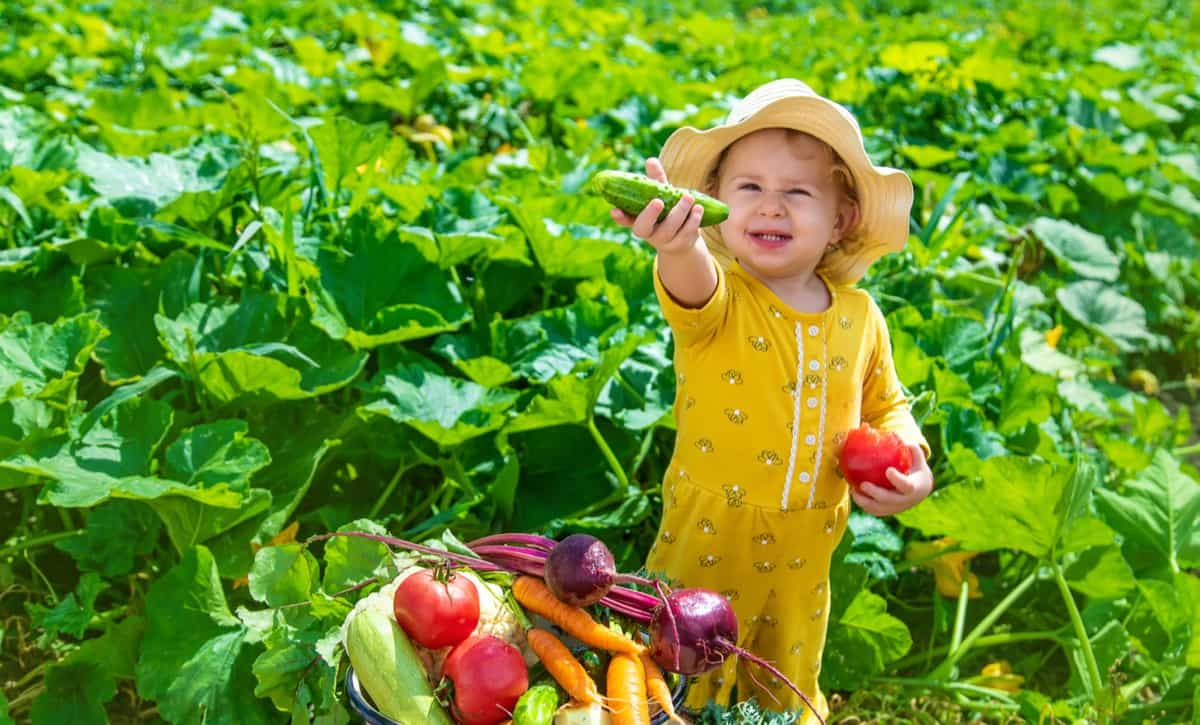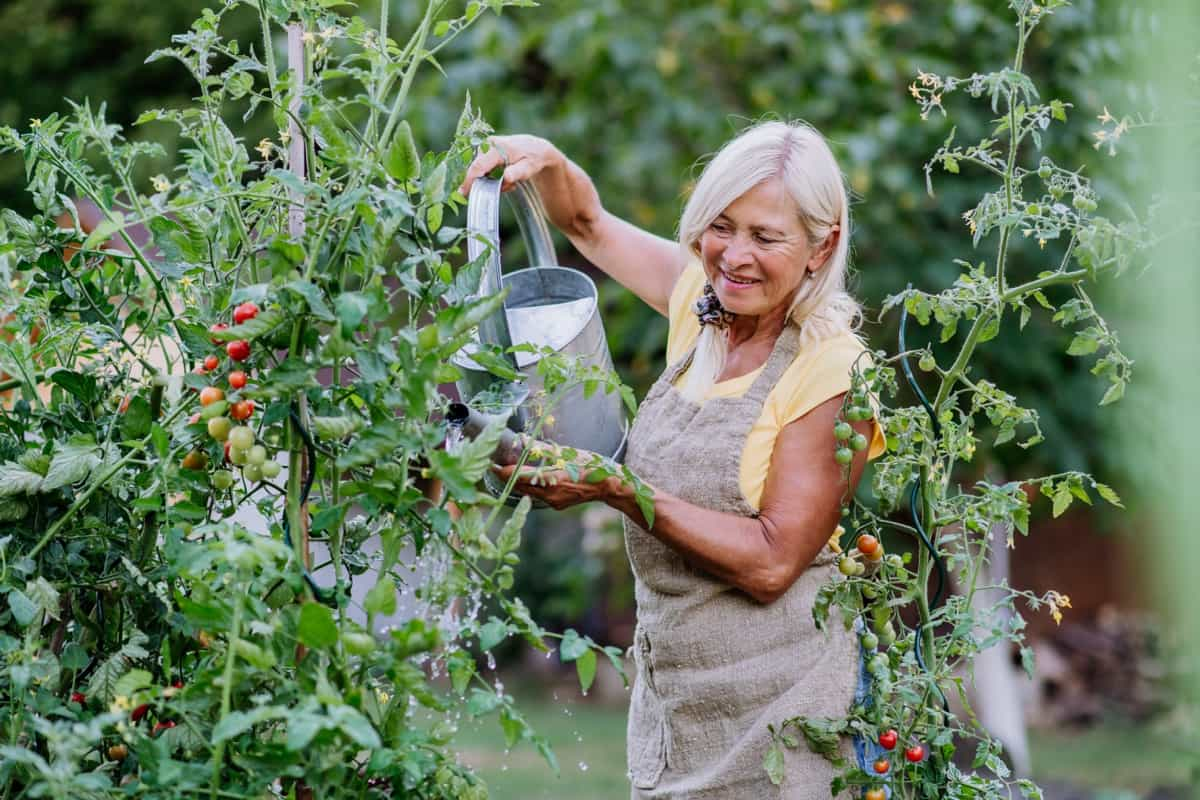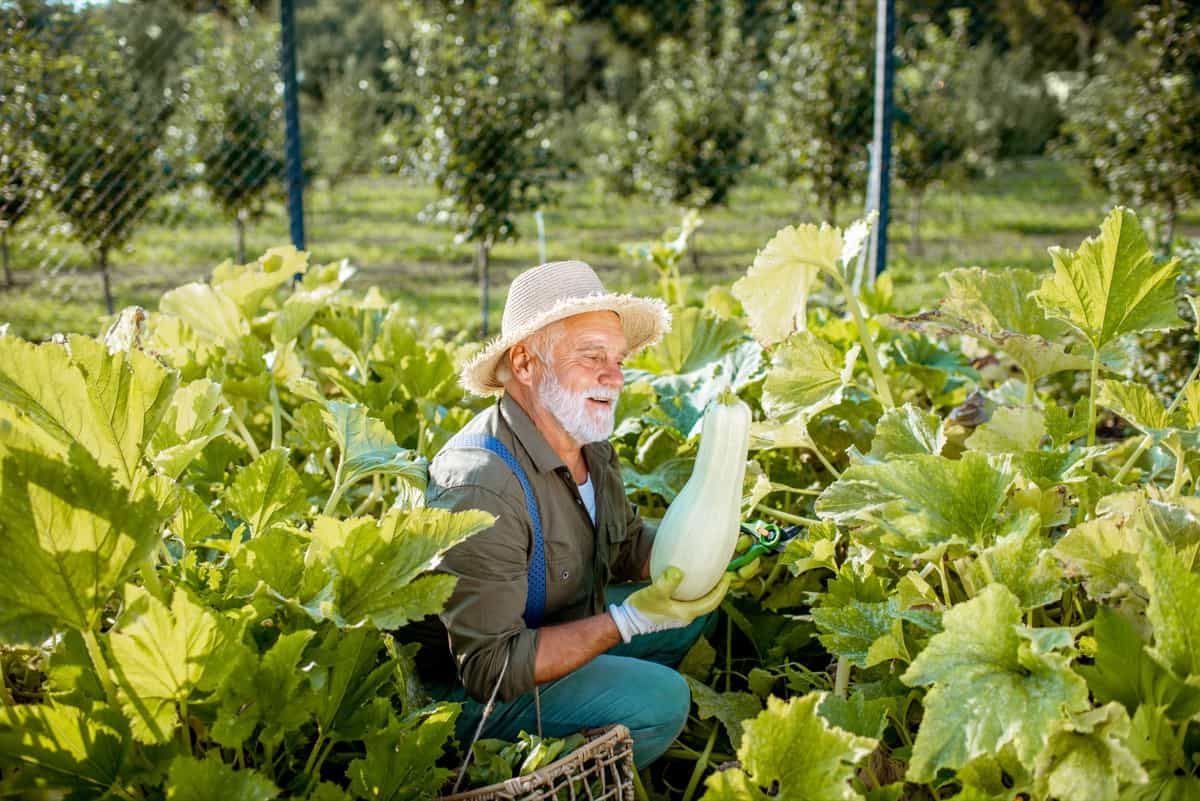With its variable climate, Michigan presents a unique opportunity for gardeners to cultivate various vegetables throughout its diverse regions. Gardening in Michigan month-by-month can be an adventurous pursuit, especially considering its ever-changing temperatures and growing conditions.

With the right know-how, Michiganders can make the most of their gardens, choosing the best vegetables to grow in pots in Michigan, as well as those suited to various seasons. By closely following a Michigan vegetable planting calendar, residents can benefit from a bountiful harvest in summer, a vibrant spring garden, and even, with a bit of effort, some winter produce. But which vegetables are best suited for each season in Michigan?
Easy and Best Vegetables to Grow in Michigan in Winter Season
While it may seem counterintuitive, gardening doesn’t halt during Michigan’s cold winters. In fact, certain vegetables thrive in chilly temperatures. Kale and spinach are excellent choices for winter gardening due to their ability to withstand the cold. Additionally, root vegetables such as carrots and parsnips can be left in the ground and harvested throughout the winter months.
These vegetables tend to sweeten with the frost, offering a delicious treat amidst the cold. Furthermore, brussels sprouts, though requiring an early planting, can withstand the harsh Michigan winter, improving in taste after a good frost.
Top Vegetables to Grow in Michigan’s Summer Season
Summer in Michigan is the peak gardening season. And for those wondering about the best vegetables to grow in Michigan summer, there’s a broad palette. Tomatoes, always a garden favorite, thrive in Michigan’s summer heat, particularly when planted in well-draining soil and given adequate water. Sweet corn is another Michigan staple, growing tall under the summer sun. Beans, zucchini, cucumbers, and peppers are also excellent choices for the summer season, each adding color, taste, and nutrition to your garden bounty.
Ideal Vegetables for Michigan’s Spring Season
When spring arrives, the question arises: what vegetables can you plant in spring in Michigan? The answer is numerous! As the snow melts away, radishes, lettuce, and peas are among the first vegetables to be sown. They thrive in the mild temperatures of spring and mature quickly. Beets and turnips also make excellent spring plantings, with their roots developing fully as the season progresses. Broccoli and cauliflower are other spring favorites, setting heads before the heat of summer takes over.
Cold-tolerant Vegetables for Michigan’s Harsh Winters
As mentioned, winter in Michigan isn’t devoid of gardening opportunities. Vegetables like Swiss chard and collard greens can tolerate a good amount of frost, making them ideal candidates for winter gardening. Furthermore, garlic, planted in the fall, remains dormant during the winter and starts sprouting in the spring, making it a hardy choice for the colder months.
In case you missed it: Best Tasting Tomatoes to Grow in Michigan: Time to Plant, Types, and Varieties

Heat-tolerant Vegetables for Michigan’s Hot Summers
With summers that can be surprisingly hot, especially in regions like Detroit and Grand Rapids, Michigan, gardeners need vegetables that can stand up to the heat. Eggplants, thriving in warmer temperatures, are a fantastic option. Okra, which can often be tricky to grow in cooler climates, flourishes in Michigan’s hot summers. With their love for heat and long growing season, sweet potatoes are another excellent choice for those looking to make the most of the summer months.
Early-maturing Vegetables for Michigan’s Short-Growing Season
The unpredictable climate of Michigan sometimes means a shorter growing season. For such times, gardeners can turn to early-maturing vegetables. Bush beans, for instance, can produce a harvest in just 50 days. Radishes are another quick-growing option, ready to eat in as few as 30 days. Early varieties of potatoes and lettuce can also be harvested quickly, making them ideal choices when time is limited.
Disease-resistant Vegetables for Michigan’s Challenging Climate
Michigan’s humidity and variable weather conditions can sometimes introduce plant diseases. To combat this, opting for disease-resistant varieties can be a game-changer. Certain types of tomatoes, for instance, come bred to resist common diseases like blight. Likewise, some cucumber varieties are less prone to the dreaded powdery mildew. Michigan gardeners can ensure a healthier, more productive garden by choosing these resilient varieties.
Low-maintenance Vegetables for Beginner Gardeners in Michigan
Several low-maintenance vegetables promise good yields for those just beginning their gardening journey in places like Lansing or Flint. Potatoes, once planted, require minimal care other than occasional watering and hilling. Similarly, green beans, whether bush or pole varieties, are relatively easy to grow and offer bountiful harvests. Green onions and kale are other beginner-friendly options, resistant to pests, and require little attention.
Nutrient-rich Vegetables to Enhance Your Michigan Garden
For those aiming for a garden that’s as nutritious as it is beautiful, Michigan offers plenty of options. Spinach, rich in iron and calcium, grows well in both spring and fall. Broccoli, a powerhouse of vitamins, can be planted in both spring and late summer for a dual harvest. Carrots, packed with beta-carotene, are a crunchy addition to any garden, and bell peppers, high in vitamin C, add both color and nutrition.
In case you missed it: How to Stop Mango Flower Drop and Fruit Drop: Effective Methods

Versatile Vegetables for Michigan’s Varied Regions
With its sprawling landscape, Michigan encompasses various microclimates from the Upper Peninsula to the southernmost parts of the state. In the cooler, often frost-prone Upper Peninsula, vegetables like cabbage, beets, and turnips are particularly well-suited. These vegetables can handle cooler temperatures and shorter growing seasons.
Conversely, in the warmer regions of southern Michigan, areas like Ann Arbor and Kalamazoo benefit from a slightly longer growing season. Here, gardeners can experiment with warmth-loving vegetables like watermelons, pumpkins, and even some types of squashes. Understanding the distinct characteristics of Michigan’s regions allows gardeners to tailor their vegetable choices, ensuring optimal growth and yield.
Integrated Pest Management for Michigan Gardens
Every gardener faces the challenge of pests, no matter where they’re located. In Michigan, common pests like the tomato hornworm, cabbage worm, and Colorado potato beetle can wreak havoc on an otherwise thriving garden. Integrated Pest Management (IPM) is a holistic approach to controlling pests, focusing on natural prevention and minimal use of chemicals.
Gardeners can naturally curb pest populations by introducing beneficial insects, such as ladybugs and lacewings. Companion planting is another effective tactic; for example, planting marigolds alongside tomatoes can deter nematodes. Regularly inspecting plants, proper crop rotation, and using organic repellents can further bolster a garden’s defense against pests, ensuring a healthy harvest season after season.
In case you missed it: Easy and Best Vegetables to Grow in New Hampshire: Planting Guide for Winter, Summer, and Spring

Conclusion
Michigan’s varied climate offers gardeners a unique and exciting challenge. With careful planning and the right vegetable choices, anyone can have a thriving garden in this beautiful state, from chilly winters to sultry summers.
- Feed Your Flock for Less: Top 10 Tips to Save on Chicken Feed
- Ultimate Guide to Ossabaw Island Hog: Breeding, Raising, Diet, and Care
- Hatching Answers: The Top 10 Reasons Your Chickens Aren’t Laying Eggs
- Eggs and Economics: Breaking Down the Cost of Raising Backyard Chickens
- Defend Your Greens: Proven Methods to Keep Iguanas Out of Your Garden
- Ultimate Guide to Cinnamon Queen Chicken: A Comprehensive Guide for Beginners
- Ultimate Guide to California Tan Chicken: Breeding, Raising, Diet, Egg-Production and Care
- Ultimate Guide to Marsh Daisy Chicken: Breeding, Raising, Diet, and Care
- 10 Types of Chicken Farming Businesses You Can Start for Profits